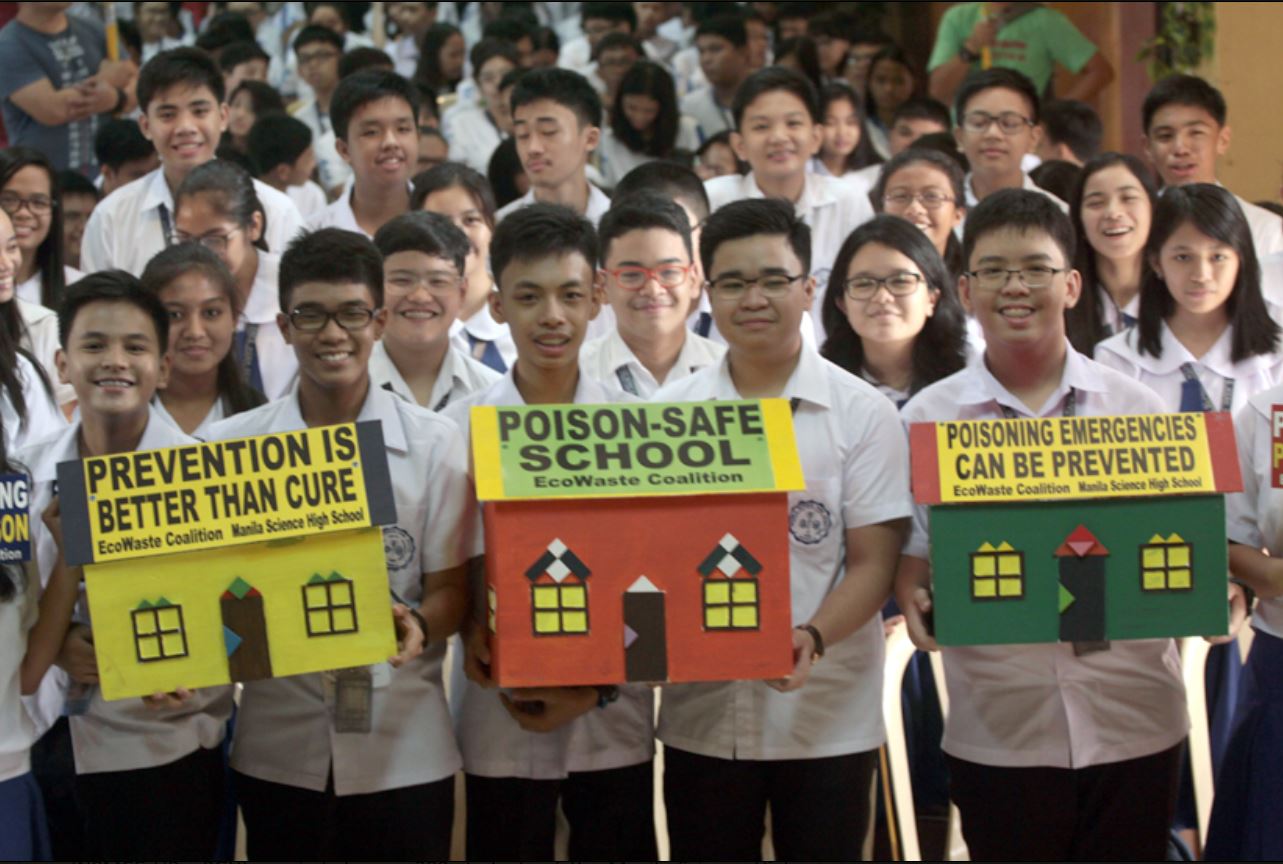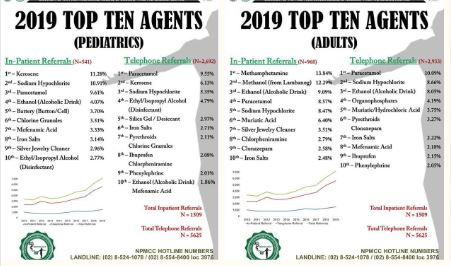
Why do we need to poison-proof our homes?
Did you know that last year alone, over 7,000 people were referred to hospitals for poisoning? And that is just the Philippine General Hospital statistics.
In light of the National Poison Prevention Week observed every fourth week of June by virtue of Proclamation No. 1777, which aims to raise awareness about the effects and how to avoid poisoning, the Philippine Society of Clinical and Occupational Toxicology (PSCOT) and the EcoWaste Coalition is appealing to everyone to take steps in preventing exposure to poisons.
Due to the COVID-19 pandemic, demand has increased for household cleaning products such as bleach, detergent, and alcohol. This in turn also means an increased risk of poisoning at home, with children being the most susceptible.
Aside from children having the least awareness when it comes to distinguishing harmful substances, their motor control and self-control are not reliable – and accidents like spillages occur. These accidents affect them more than adults, according to Thony Dizon, a Chemical Safety Campaigner from EcoWaste Coalition.
“Their body defense systems are still undeveloped, they breathe more air, eat more food and drink more water in proportion to their weight, they have thinner skin, and they often put their hands and even objects, which may contain germs and chemical contaminants, in their mouths,” Dizon said.
Total poisoning referrals in hospitals have risen from 3,500 to 7,000 during the period of 2010 to 2019. The trend only shows that it will continue to rise higher until people start to be more mindful of handling potentially poisonous substances.
The mortality rate reaches 2% in those that are admitted. Especially during this time of over-booked hospitals, it is important to be mindful and aware of the things in our environment because poisoning is preventable- and prevention is better than cure.

The following preventative measures from PSCOT and the EcoWaste Coalition can ensure safer, poison-proof homes:
- Handle, use, store, and dispose of products safely at all times.
- Read the product labels carefully, be mindful of hazard pictograms and precautionary warnings, and follow safety instructions.
- Return all products to their proper storage immediately after use.
- Never place poisonous products in beverage and food containers. Keep them in their original containers.
- Store food and potential poisons in separate cabinets.
- Keep medicines, bleaching, cleaning and laundry products, e-cigarette liquid refills, insecticides, paints, varnishes and thinners, and car maintenance materials out of children’s sight and reach in a securely locked cabinet or area.
- Never allude to medicine as “candy,” “chocolate” or any other name that appeals to a child.
- Safely get rid of unused, unwanted, or expired medicines, vitamins, and supplements.
- Do not mix household cleaning products together to prevent the formation of dangerous fumes.
- Never reuse pesticide and other chemical containers for storing food and water.
- Secure the battery compartment of games, toys, and other items powered by small button-cell batteries, which can cause choking and chemical risk if ingested.
- Wash children’s toys and other playthings regularly to lessen the risk of ingesting lead-containing dust and other environmental pollutants.
- Teach kids how to safely use art materials such as crayons, watercolors, glues, and other adhesives and remind them not to eat or drink while doing their art assignments.
- Be aware of plants inside and outside your home as some of them may be poisonous to children, as well as pets.
- Put the National Poison Management and Control Center (NPMCC) emergency phone numbers on your mobile phone and call the center for advice and referral if needed: 85241078, 85548400 local 3976, 0966-7289904 and 0922-8961541.
“By taking steps to poison-proof our homes and educating our families about poisoning prevention, we surely can avoid life-threatening medical emergencies and unnecessary medical bills,” said Dr. Carissa Dioquino-Maligaso, President of PSCOT and Chairperson of the Department of Neurosciences of the Philippine General Hospital.
EcoWaste Coalition has spearheaded various campaigns on the impact of toxins including lead-containing industrial paints that have since been phased out and toxic cosmetics.
SEND CHEERS to PSCOT and EcoWaste Coalition to show support for National Poison Prevention Week and to acknowledge their guide on poison prevention.
Want to know how to be a Proud Pinoy? Like, Follow, Subscribe to GoodNewsPilipinas.com, and our socials Facebook, Twitter, Instagram, Good News Pilipinas! TV on YouTube, for new story notifications, and e-mail newsletters for updates on more Filipino Pride stories.










